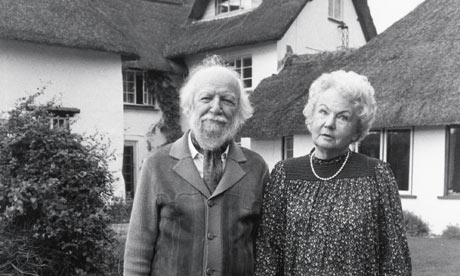
British novelist Sir William Golding (1911-1993) is best known for his novel Lord of the Flies (1954), which depicts the descent into savagery of a group of schoolboys deserted on a desert island.He won the Nobel Prize for literature in 1983.Golding was born at Saint Columb Minor in Cornwall.He studied English literature at Brasenose College at the University of Oxford.He also worked in the theater as a writer and actor for a short time.He then became a trained teacher.He left this profession during World War II (1939-1945), and served in the Royal Navy.After the war got over, Golding returned to writing.Fortunately, his very first novel, The Lord of the Flies (1954; motion picture by English director Peter Brook, 1963), became extremely successful.And it is now considered one of the great works of 20th-century literature.The novel is based on Golding's own wartime experiences.It is basically the story of a group of schoolboys marooned on a desert island after a plane crash.The novel serves as an allegory of the inherent corruption of human nature.It chronicles the boys' descent from a state of innocence to one of barbarism.After Lord of the Flies he wrote many novels like The Inheritors (1955) and Pincher Martin (1956) with the same themes of good and evil in human nature.Much of Golding's novels explore human reactions and moral dilemmas in extreme situations.His three works Rites of Passage (1980); Close Quarters (1987); and Fire Down Below (1989) shows his keen interest in the sea.He also wrote two collections of essays, The Hot Gates (1965) and A Moving Target (1982); and a play called The Brass Butterfly (1958).His last novel, The Double Tongue, was published posthumously in 1995.

0 comments:
Post a Comment